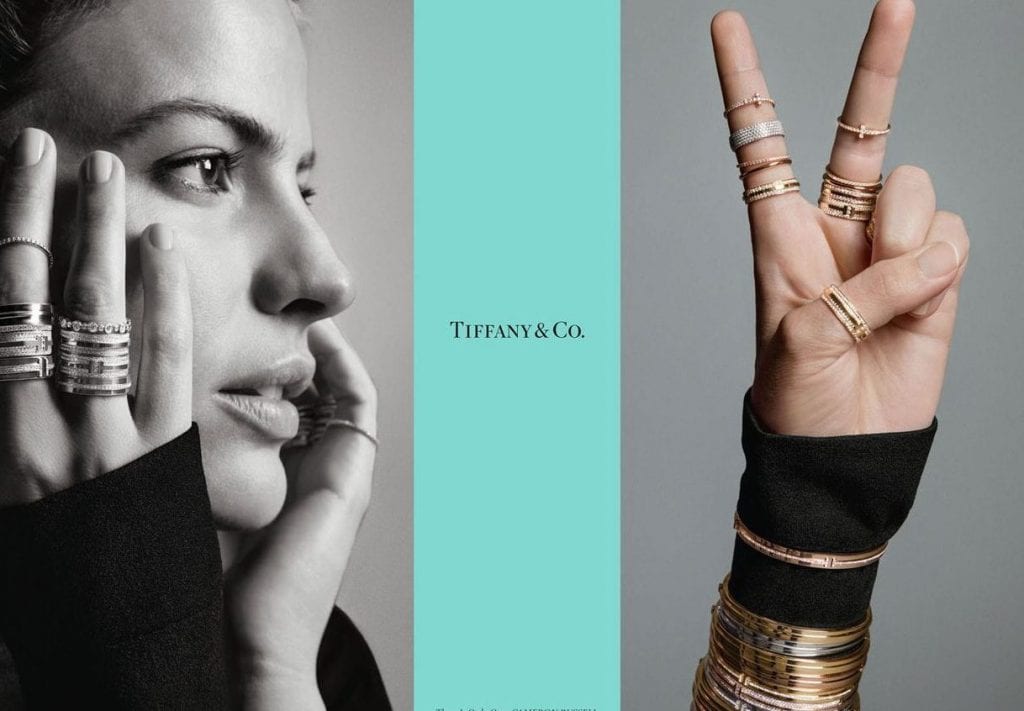LVMH Moët Hennessy Louis Vuitton made good on its vow to defend itself against Tiffany & Co.’s “baseless” lawsuit, initiating a suit of its own on Monday. In the complaint that it filed in a Delaware Chancery Court, LVMH claims that it was legally above-board in pulling the plug on the $16.2 billion merger it entered into with Tiffany & Co. in November 2019 on the basis that the business it agreed to acquire, “a consistently highly profitable luxury retail brand, no longer exists,” and instead, the stalwart jewelry company has been mismanaged throughout the COVID-19 pandemic, leading it to “hemorrhage cash … with no end to its problems in sight.”
Pushing back against Tiffany & Co.’s allegations that it failed to abide by its contractual obligation under their “iron-clad” merger agreement, including to complete the transaction on the agreed-upon terms, LVMH claims in a nearly 100-page filing that the parties’ deal is no longer valid for a couple of key reasons. Primarily, counsel for the Paris-based luxury goods titan – which owns more than 70 luxury brands, ranging from Louis Vuitton and Dior to Dom Perignon and Moet – alleges that Tiffany’s “mismanagement” has triggered the material adverse event (“MAE”) clause in the parties’ deal.
Mismanagement, “Ill-Suited” Strategy
“In the face of the extraordinary headwinds of the pandemic, a prudently managed company would tighten its belt by, among other things, slashing dividends,” LVMH argues. “Most, if not all of Tiffany’s peers, did precisely that. But not Tiffany.” On the contrary, LVMH claims that “at the same time it was experiencing devastating operational losses and huge negative cash flows, Tiffany showered investors with $70 million in dividends in the first quarter of 2020, [and] as the pandemic continued, Tiffany issued another $70 million in dividends in the second quarter of 2020.”
The result, per LVMH, is that Tiffany “hemorrhaged cash for the first time in a quarter century, with no end to its problems in sight.” In fact, the group asserts that “Tiffany’s performance will continue to be poor,” and argues that the jewelry company’s current “retail strategy” – is “particularly ill-suited for the challenges ahead” and will “have a significant long-term detrimental impact on the company.”
With Tiffany’s “mismanagement” and resulting losses in mind, LVMH claims that the MAE clause in the parties’ contract has been triggered, thereby taking the deal off of the table. The occurrence of an MAE – which typically includes an event or series of events in connection with which there is a significant or material deterioration in the financial health of the target or in the stability of the target’s business between the signing of the agreement and the closing – often triggers a risk-allocating clause in parties’ acquisition agreement, which permits the buyer to terminate a proposed transaction or agreement.
As for whether Tiffany is shielded by a pandemic-specific carve-out, or a contractual provision that prevents a buyer (LVMH, in this case) from terminating an agreement on the basis of a pandemic-related MAE, LVMH says it is not. “The notable absence of a pandemic carveout in the definition of a material adverse effect in the Tiffany merger agreement is clear,” per LVMH. While counsel for the Bernard Arnault-run conglomerate claims that “it was common before COVID-19 for transactions to contain a pandemic carveout,” and that “in the course of the negotiation in November 2019, Tiffany sought and received carveouts for highly specific events, such as ‘cyberattacks,’ the ‘Yellow Vest’ movement and the ‘Hong-Kong protests,’” Tiffany & Co. did “not obtain a carveout for public health crises or pandemics.”
“Against this backdrop, the decision by two sophisticated parties, represented by sophisticated advisers, to omit a pandemic carve-out is telling,” LVMH asserts, arguing that the pandemic has, in fact, “caused a material adverse effect that allows LVMH to terminate.”
Golden Parachute
In case that is not enough (and it very well might not be, given courts’ general reluctance to apply MAE clauses), LVMH argues that the deal is done and that it should be able to walk away penalty-free thanks to the August 31 letter it received from the French Foreign Minister Jean-Yves Le Drian, telling Arnault that he “should defer the closing of the pending Tiffany transaction until January 6, 2021” as a result of the U.S. government’s decision “to implement an additional customs duty on the import of certain French goods” in connection with the two country’s fight over France’s implementation of a digital services tax – came as a result of an inquiry from LVMH.
Despite Tiffany’s arguments to the contrary (and potential evidence that LVMH had a hand in giving rise to the letter in the first place in an attempt to derail the deal), LVMH has since characterized the letter as a binding “legal restraint” from the French government that prohibits it from moving ahead with the acquisition’s November 24 deadline.
Still yet, LVMH paints an ugly picture of Tiffany’s higher-ups, asserting in its filing that Tiffany’s management and board make “baseless allegations” the lawsuit that Tiffany filed earlier this month in an effort “to resurrect the transaction” given that “they all stand to profit far more if it proceeds than if Tiffany goes forward as a stand-alone company in its wounded state.”
“Tiffany’s CEO Alessandro Bogliolo, alone, stands to receive a change of control payout in excess of $44 million,” per LVMH. “His golden parachute is equivalent to Tiffany’s losses in the first half of 2020. Tiffany’s top five executives are in line to receive approximately $100 million collectively. On a stand-alone basis, Tiffany’s executives would never earn compensation like this and now, going forward, will instead have to face harsh realities and the shell of Tiffany’s former business.”
Tiffany’s Response
In a statement on Tuesday, Tiffany & Co. chairman Roger Farah responded to the countersuit, saying, “LVMH’s specious arguments are yet another blatant attempt to evade its contractual obligation to pay the agreed-upon price for Tiffany. Tiffany has acted in full compliance with the Merger Agreement, and we are confident the Court will agree at trial and require specific performance by LVMH. Had LVMH actually believed the allegations made in its complaint, there would have been no need for LVMH to procure the letter from the French Foreign Minister as an excuse for its refusal to close.”
In addition to characterizing LVMH’s MAE claim as “baseless” and having “no factual, contractual or legal support,” Tiffany asserts that “LVMH has still offered no support for its claim that Tiffany breached its obligation to conduct its business in the ordinary course,” claiming that “the real reason LVMH complains about the dividend payments is that it wanted the cash left in the company for its benefit rather than paid to Tiffany shareholders as negotiated in the Merger Agreement.”
The jewelry titan also states that “LVMH’s efforts to shift the blame for foot-dragging in the regulatory process cannot hide the fact that LVMH took almost 10 months even to submit its notification to start the clock on the European Commission’s merger clearance process – and only did so after Tiffany filed a lawsuit against it. LVMH’s breach has resulted in a delay in closing the merger that should have occurred at the end of June so the harm to Tiffany and its shareholders is significant and ongoing.”
LVMH’s countersuit comes less than a month after Tiffany & Co. filed suit against it on September 5, arguing that the luxury goods group was backing out of the $16.2 billion deal it reached in November 2019.
*The case is Tiffany & Co. v. LVMH Moët Hennessy-Louis Vuitton SE; Breakfast Holdings Acquisition Corp.; and Breakfast Acquisition Corp., 2020-0768 (Del. Ch.).











